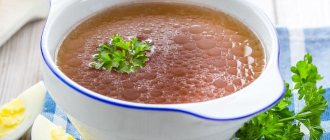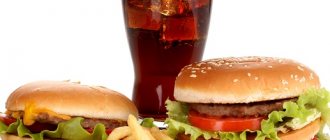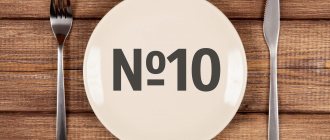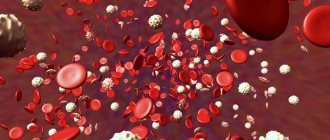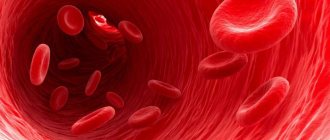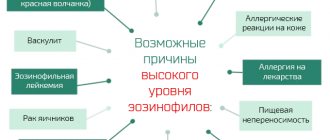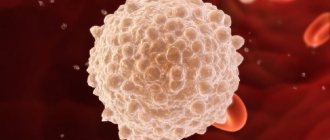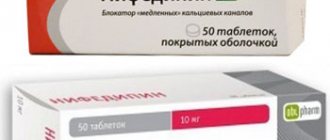Blood collection
Almost any changes in the body are reflected in the composition of the blood.
In humans, a sample of the material is usually taken from the ring finger or the inner crease of the elbow - at the site of the vein. Blood can be collected for transfusion to people in need - this is donation. In most cases, this liquid is a sample for various analyses:
- General clinical. Allows you to identify the number of red blood cells, hemoglobin, leukocytes, platelets, etc. Diagnostics of hematological, infectious, inflammatory processes.
- Biochemical. A study that helps to assess the functioning of the entire body, the work of some of its organs, and metabolism.
- For sugar. The amount of glucose in the blood mass is determined.
- Immunological. The percentage of protective cells in the blood is determined. Allows you to identify immunodeficiency at an early stage.
- Allergy test. Determines a person’s sensitivity to certain allergens.
- Serological. Determines blood type, the presence of antibodies to a particular virus, infection.
- Hormone. By determining the level of any hormones in the body, it allows one to judge the presence of certain diseases.
- For tumor markers. Proteins produced during tumor processes in the body are identified.
How can water affect the result?
Pure non-mineral and non-carbonated water seems to many to be absolutely safe, but this is not so. Doctors are inclined to believe that it can affect the composition of the blood, because it is a solution of chemical elements. Before the general analysis, drinking a small amount of it is not prohibited. You cannot only drink tea, coffee, synthetic drinks and mineral water. If the doctor decides to combine a general finger blood test with checking your sugar level, then you can drink water. It is not able to break down glucose.
You cannot even drink clean water during a test to determine the biochemical composition of your blood. This is due to the fact that its primary task is to determine the amount of blood components responsible for the functioning of the liver and kidneys. Water is most dangerous when tested for the amount of uric acid. It will dilute the urine and distort the result; the doctor may miss deviations during decoding.
General principles of preparation for analysis
Using a general blood test, the doctor determines the cellular composition of the blood, hemoglobin level and erythrocyte sedimentation rate (ESR). Based on deviations in the values of general (clinical) blood test indicators, a specialist can identify the presence of inflammation in the body, determine the nature (bacterial or viral) of the disease, and determine the development of anemia and other pathological conditions. Sometimes changes in clinical blood test parameters are the first to signal the onset of the development of serious blood diseases.
A general blood test is taken during routine examinations to monitor the condition of pregnant women and patients who have chronic diseases.
Preparation
There is no consensus among experts regarding whether to take a general blood test strictly on an empty stomach or whether you can still eat before a blood test. Some doctors recommend donating blood for clinical research strictly on an empty stomach, that is, at least 10-12 hours should pass from the time of the last meal.
You are allowed to drink water immediately before the blood test. Only it should be clean, still water without dyes or flavors.
Experts recommend refraining from drinking alcohol for two to three days before donating blood for a general examination. Two to three hours before the test you need to stop smoking.
On the eve of blood sampling for research, excessive physical activity and psycho-emotional stress are not recommended. You cannot visit a bathhouse or sauna before a blood test.
If the patient is taking any medications, he must notify the doctor who prescribes this blood test.
Proper preparation – reliable results!
Now that the organization of nutrition before blood tests of various types is known to all readers of our resource, it would not be amiss to consider the general principles of preparation for this type of examination.
As a rule, restrictions on preparatory activities are not so significant, but compliance with them is extremely important to obtain the most accurate and reliable diagnostic result.
The general list of training includes the following:
- 72 hours before blood sampling, it is important to stop taking medications that have any effect on the condition of the blood. The list of these is quite wide, so it is advisable to consult with a treating specialist regarding this issue before conducting the examination.
- 48 hours before the test, completely avoid drinking alcohol.
- It is advisable to take blood sampling in the morning, since it is during this period of the day that its condition is closest to the actual one and is more convenient for obtaining reliable data on the state of human health.
- There is no need to smoke 3 hours before collecting biomaterial, since nicotine has a significant effect on the structural structure of the blood.
- Before the analysis, it is extremely important to get a good night’s sleep and first exclude any physical/psychological stress on the body and pathologies that worsen your well-being. If there are any, it is better to postpone the examination for some period of time.
A general blood test is a common and basic laboratory diagnostic method.
Due to the high importance of a blood test, it is important to properly prepare for this procedure, otherwise you will not be able to obtain reliable and most accurate results. As noted earlier, the preparation method directly depends on the purpose for which the biomaterial is collected.
Today our resource will consider basic types of analysis and principles of preparation for them. Let's start, perhaps, with an analysis of nutrition on the eve of a general blood test. Firstly, it is important to know that this type of diagnosis must be done on an empty stomach, that is, you cannot eat immediately before the analysis.
In addition, before the analysis you also do not need to quench your thirst with drinks containing alcohol, coffee and tea. It is better to give preference to ordinary water. These restrictions are largely due to the fact that a considerable number of products can temporarily modify the composition of the blood, as a result of which the examination results are not as reliable as we would like.
Despite such strict restrictions, for people for whom food intake is simply vital even before a blood test, there is a list of products available for consumption even before this type of examination. It includes:
- all porridges are made with water without butter or sugar
- bread
- low-fat cheese
- fresh vegetables
- weak tea (no sugar)
It is worth noting that any meal before a general blood test should be light and consist of a small amount of food. It is strictly forbidden to eat meat, fish, smoked foods, sweet products, sugar, all types of oils, fatty and canned foods.
Biochemical blood test - effective diagnosis of the condition of internal organs
A biochemical blood test, along with a general one, is a basic method for examining the condition of the human body based on red blood cells. The general principles of preparation for this examination method are very similar to those indicated earlier.
Taking blood for biochemical analysis is not even advisable, but must be done on an empty stomach, without drinking coffee, tea or alcohol-containing drinks beforehand.
In addition, it is very important 12-24 hours before the analysis to try to exclude from your diet such foods as:
- all fried, smoked and fatty foods
- sparkling water
- alcohol in any form
- all sources of animal protein (meat, fish, kidneys, etc.)
It is worth noting that in order to obtain more reliable analysis results, the attending physician may prescribe the patient a fairly strict diet, which must be followed 1-2 days before the examination. Such an event should not be ignored, since the accuracy of the diagnostic results obtained largely determines how effective and how quickly the therapeutic process will proceed.
Also, before a biochemical blood test, it is advisable to stop brushing your teeth and not even use chewing gum. Surprisingly, even these seemingly harmless things seriously affect the final results of the examination.
For most studies, blood is taken strictly on an empty stomach, that is, when at least 8 hours have passed between the last meal and blood collection (preferably at least 12 hours). Juice, tea, coffee should also be excluded.
You can drink water.
1-2 days before the examination, exclude fatty foods and alcohol from the diet. One hour before taking blood, you must refrain from smoking.
Before donating blood, you need to avoid physical activity. Blood should not be donated immediately after radiation examination (x-ray, ultrasound), massage, reflexology or physiotherapeutic procedures.
Since different laboratories may use different research methods and units of measurement, it is recommended that in order to correctly evaluate and compare the results of your laboratory tests, they should be carried out in the same laboratory.
Before taking a general blood test, the last meal should be no earlier than 3 hours before the blood draw.
DETAILS: Varicose dermatitis of the lower extremities - treatment with ointments
To determine cholesterol and lipoproteins, blood is taken after a 12-14 hour fast. To determine the level of uric acid, you must follow a diet: avoid eating foods rich in purines - liver, kidneys, limit meat, fish, coffee, tea in your diet.
Blood donation for hormonal testing is carried out on an empty stomach (preferably in the morning; if this is not possible, 4-5 hours after the last meal in the daytime and evening).
When testing the level of prostate-specific antigen (abbreviated PSA) the day before and on the day of the test, strict abstinence must be observed. Blood should not be donated for several days after TRUS or palpation of the prostate gland (prostate).
The results of hormonal studies in women of reproductive age are influenced by physiological factors associated with the stage of the menstrual cycle, therefore, when preparing for an examination for sex hormones, the phase of the cycle should be indicated.
Hormones of the reproductive system are given according to the days of the cycle: LH, FSH - days 3-5; Estradiol - 5-7 or 21-23 days of the cycle; progesterone 21-23 days of the cycle. prolactin, DHA sulfate, testosterone - 7-9 days. Blood for insulin and C-peptide is given strictly on an empty stomach in the morning.
Thyroid hormones, insulin, C-peptide are given regardless of the day of the cycle.
For general analysis, only the first morning urine sample is used. The first few milliliters of urine are drained to remove desquamated cells from the urethra. Toilet the external genitalia first. Urine for research must be delivered within 2 hours from the moment of collection.
Collect urine for 24 hours with normal drinking regimen (about 1.5 liters per day). In the morning at 6-8 o'clock you need to urinate (pour out this portion of urine), and then during the day collect all the urine in a clean dark glass container with a lid, the capacity of which is at least 2 liters. The last portion is taken exactly at the same time when the collection began the day before (the start and end times of the collection are noted).
It is necessary to indicate the entire volume of daily urine!
Donating blood is a responsible procedure that accompanies a person throughout his life. It is necessary to prepare for it in advance. Regardless of the form of the survey, restrictions on food intake are almost the same. Strict adherence to the recommended diet will help to carry out the analysis most accurately and identify existing deviations.
What should a donor be like?
The donor is required to:
- A person must reach adulthood. Weight not less than 50 kg.
- There should be no contraindications for health reasons.
- You must present an ID or passport to the transfusion station.
- Pre-registration at medical institutions.
- If the donor is a relative of a sick citizen, then the examination is carried out in the appropriate order.
Donor examinations are carried out:
- Every six months it is necessary to undergo a medical examination, according to which a certificate is issued and presented to the transfusion station.
- Once a year, FLG is performed and an electrocardiogram is taken.
- A certificate of no contact with infectious people is issued every six months. This includes hepatitis A, B and C.
- Women must provide information about previous births, abortions and other surgical interventions.
Pregnant women should not donate blood; the burden on the body is high, and donating plasma will only worsen the condition of the fetus.
Diet before analysis
The rules for preparing for donating biomaterial from a vein and from a finger are the same: on the eve of the test, you must adhere to a diet, blood is donated strictly on an empty stomach.
The minimum period of abstinence from food is 7 hours, in some cases a longer fast is required (up to 16 hours). Immediately after eating, you cannot donate blood from a vein or from a finger for analysis - the results of the study will be unreliable.
Before General (UAC)
The diet before donating blood for a general analysis should consist mainly of fresh vegetables and cereals without added sugar, salt and oil. For breakfast, boiled buckwheat or rice porridge, a piece of white bread and fruit are suitable. For lunch, you can boil or steam 150-200 g of fish and eat it along with a large portion of fresh vegetable salad. In the morning and in the middle of the day, you are allowed to drink a cup of weak tea without sugar or sweeteners.
Dinner should be light and consist mainly of vegetables; you can eat a few homemade crackers from white bread; in the evening you can no longer drink tea. If blood donation is scheduled for 7 a.m., you should have dinner from 7 to 11 p.m. the previous day.
Doctors have different opinions regarding the duration of abstinence from food before donating blood for a general analysis. Traditionally, it is customary not to eat for 8-12 hours before collecting biomaterial, but modern doctors claim that a 4-hour break after a light breakfast is enough for blood counts to return to normal. In any case, you should check this information with your doctor.
For biochemistry
A biochemical blood test requires more careful preparation and may require short-term adherence to a strict diet.
2-3 days before the expected analysis, you should exclude all prohibited foods and also give up tea. Products containing ethanol are prohibited; these include not only alcoholic beverages, but also kefir, kumiss, kvass, and pickles.
The diet should contain a minimum amount of fat; chicken and fish should also be avoided. The emphasis should be on cereals, fresh vegetables and fruits; a small amount of white bread, fresh or dried, is allowed.
It is necessary to donate blood for biochemistry only on an empty stomach. You are allowed to drink only pure non-carbonated water in limited quantities: no more than half a glass half an hour before the procedure. Large amounts of fluid can affect the concentration of uric acid, glucose and white blood cells in the blood.
You should fast for at least 10 hours, sometimes requiring a 14-hour overnight fast. If the laboratory visit is scheduled for 8 a.m., you can have dinner the night before no later than 10 p.m. If you need to check your cholesterol levels, you should have dinner before 6 p.m.
For hormones
Before donating biomaterial for hormones, you should follow the nutritional principles that are recommended for preparing for a general blood test. The patient can eat a small amount of dietary protein per day, eat cereals, berries, fruits, low-fat dairy products, and bread. However, before a hormonal study, you need to exclude tea: the caffeine contained in the drink can affect hormonal levels.
A sharp change in diet causes dissatisfaction and irritability; an unstable emotional background leads to changes in the level of certain hormones. To avoid this, you should adjust your diet gradually, gradually removing prohibited foods from your diet. Diet correction should begin 4-5 days before the expected analysis.
Even a small piece of food or a sip of drink can affect hormonal balance and greatly skew the results of the study. The recommended fasting period is 8-14 hours. You should not abstain from food for more than 14 hours - prolonged hunger can also lead to changes in hormone levels. If the test is scheduled for 7 a.m., you should have dinner between 5 and 11 p.m.
For HIV
3 days before submitting the biomaterial for examination, you must give up any alcoholic beverages - alcohol greatly overloads the body, which can affect the results of the analysis. 2 days before visiting the laboratory, you should limit your fat intake as much as possible.
The diet should consist of fruits, a variety of cereals, berries, and homemade white bread crackers. Drinking tea is allowed even the evening before the test, but the drink should not contain sugar or sweeteners.
Doctors advise stopping eating 8-12 hours before the test, but some laboratories accept biomaterial from patients after 5-7 hours of abstaining from food. The last meal before visiting the laboratory should be very light and consist mainly of vegetables and fruits.
When is blood donated?
If a person wants to become a donor, he will have to face a lot of restrictions. The following rules must be observed:
- The last drink of alcohol should take place no less than 2 days before the procedure.
- Smoking is prohibited within an hour before donating blood.
- You should not take analgesics the day before. Additionally, you need to give up smoked foods, sweet and fatty foods, as well as dairy products.
- On the day of blood donation, you must have a nutritious breakfast.
If the blood donor is a woman, you cannot undergo the procedure during menstruation. The ban is valid for a week after its end. Pregnant women cannot take part in donating blood. In addition, there is a whole list of diseases for which donation is impossible. This:
- tuberculosis;
- brucellosis;
- syphilis;
- AIDS;
- hepatitis.
The list is not exhaustive. You can find out the entire list of prohibitions by first consulting with a specialist.
Nutrition for pregnant women
Glucose is the main indicator of carbohydrate metabolism in the body
Donating blood for sugar is a more gentle type of examination in terms of preparation for nutrition. Despite the fact that before this procedure it is also recommended not to eat for about 8-12 hours and to donate biomaterial on an empty stomach, many doctors exclude the necessity of such preparation.
However, even taking into account this fact, it is impossible to state a complete lack of diet before donating blood for sugar. At a minimum, when planning to undergo this type of diagnosis, a person should avoid the following products:
- all spicy, sweet and fatty foods
- bananas
- oranges, lemons and basically all citrus fruits
- avocado
- cilantro
- milk
- meat
- eggs
- sausage
The diet of a pregnant woman the day before donating blood for analysis should consist of easy-to-digest, low-fat foods.
Authorized products:
- cereals;
- fruits;
- fresh vegetables;
- reduced fat dairy products;
- low-fat meat: chicken, turkey, veal, rabbit;
- pasta made from durum wheat.
DETAILS: Blood culture - what is it, what does bacteriological culture show
It is necessary to give up pork, sweets, fast food, and fried foods. Meals should be fractional. On the eve of visiting the laboratory, the expectant mother should not drink tea, coffee, juices and sweet drinks; only clean still water is allowed. The dinner before the test should be very light and contain a minimum of calories.
A pregnant woman, like other patients, will have to endure an 8-hour abstinence from food.
What can and cannot be done and consumed?
It is not recommended to eat or drink anything immediately before the test . The only exception is plain water without gas or dyes.
Attention! Do not take any foods or medications that have a diuretic effect.
On the eve of the tests, you should not eat fatty, spicy or sweet foods, or sugar. It is also recommended to avoid eating bananas, oranges and tangerines, and not to eat avocados. Dill and cilantro can have a negative impact on the results of the study.
Ask your question to clinical laboratory diagnostics doctor Anna Poniaeva. Graduated from the Nizhny Novgorod Medical Academy (2007-2014) and Residency in Clinical Laboratory Diagnostics (2014-2016).Ask a question>>
It is best to have dinner with cereals, stewed or raw vegetables, and white meat on the eve of blood tests. Low-fat varieties of fish are allowed. Instead of mayonnaise, it is better to dress salads with vegetable or olive oil. The following fruits are allowed for consumption: apples, pomegranates, pears, apricots, plums. You can eat prunes and dried apricots.
Hormone analysis
Now let's look at the important stages of preparation for the procedure:
- You should not smoke before donating blood. The last cigarette smoked is no later than an hour before the procedure.
- Avoid various physiological procedures before collecting a sample of material.
- You should not drink alcohol before donating blood. The last glass of any alcoholic drink consumed was 2 days before the test date. If you are providing a sample for testing for HIV or hepatitis, this period will increase to 72 hours.
- You should also protect yourself from various physical activities. This also includes jogging and quickly going up/down stairs.
- The emotional state should be calm and balanced.
- You should arrive for the procedure 15 minutes in advance - this is enough time to calm down physically and emotionally before the analysis.
Most of all, pay attention to temporary abstinence from food, alcohol and medications. They are the ones who distort the results of the analyzes in the first place.
Consider important instructions from experts here:
- Before the procedure, strictly adhere to the individual recommendations that were given to you by the specialist who wrote out the referral for analysis.
- Stop taking medications that have not been previously discussed with your doctor.
- Blood is donated in the morning, on an empty stomach - no later than 12 noon. Last meal – 10-12 hours before
- Lollipops, chewing gum, and lozenges should also not be consumed 10-12 hours before the test.
- An unlimited amount of clean drinking water without flavorings or additives is allowed.
- If you are taking certain medications, schedule a test before using the medication.
Preparation for this type of analysis will be as follows:
- 2-3 days before the procedure, stop taking iodine-containing medications.
- Those patients who are prescribed medications containing thyroid hormones should definitely consult their doctor about the medications. It may be necessary to cancel their appointment for a while before submitting the material.
- The day before the study, all physical and emotional stress and consumption of alcoholic beverages are excluded. Smoking - at least one hour before the procedure.
- Blood is donated in the morning, no later than 12 noon.
- Taking a blood sample - on an empty stomach. The last meal should be no later than 10-12 hours before the study. This also includes chewing gum, lozenges and lollipops.
- Before the procedure itself, you need to sit in a relaxed state for 10-15 minutes.
- If the patient is taking medications, they should be taken after a blood sample is taken for testing.
- A person is not limited in the use of clean drinking water without gas and dyes.
Preparation for studying the hemostasis system will look like this:
- Alcohol intake, excessive physical activity, and emotional stress are excluded one day before the procedure. The last cigarette smoked was no later than an hour before blood sampling.
- The analysis is standard. In the morning, strictly on an empty stomach. It must be 10-12 hours since you last consumed food, drink, chewing gum, lozenges or candy.
- Without restrictions, you can only drink water without flavoring additives or dyes.
- If the patient is taking medications that affect the functioning of the blood clotting system, then their use should be planned after the procedure.
A blood sugar test is performed to diagnose diabetes mellitus, control sugar levels in patients, and the effectiveness of therapy.
Preparation
- Blood for this study can be donated either on an empty stomach or after a meal. Whether or not you can eat before a blood test will be determined by the doctor referring you for the test.
- If you need to donate blood on an empty stomach, it is important that at least eight hours have passed since your last meal. The juice or tea you drink is also taken into account.
- If you need to donate blood after a meal, you need to eat 60-90 minutes before taking blood.
- In addition, there are special methods for taking blood tests for sugar. In each specific case, the doctor determines how to properly prepare for the test.
- A blood test for hormones is almost always done on an empty stomach. It is advisable that 10-12 hours pass after the last meal before taking blood. You cannot drink tea, juice, coffee. You can drink water before the blood test.
- An exception may be tests for the hormones insulin and C-peptide. Typically, blood for such studies is donated two hours after eating. But the doctor will definitely warn the patient about this.
- If you need to take a blood test for thyroid hormones, you need to exclude iodine-containing foods from your diet for several days - fish, seafood, iodized salt.
Blood sampling for the hormone prolactin should be carried out no later than two hours after waking up.
The simplest and most common type of research is a general blood test. It allows you to determine the number and ratio of different blood cells. And the water that a person drinks cannot change these blood parameters in any way. Therefore, 1-2 glasses of water drunk the day before, an hour or two before the procedure, are quite acceptable.
The situation when a person drinks a little water immediately before donating blood will not be terrible, especially in the case when children have to undergo the procedure. However, only pure water should be used for drinking, not mineral, without any impurities, flavorings or sweeteners, and preferably non-carbonated.
The situation is somewhat more complicated with other types of analyzes. During a biochemical examination, the content of various compounds in the blood is determined. If a person drinks a large amount of liquid, this can change the balance between certain substances in the body and, as a result, the chemical composition of the blood. However, it is unlikely that deviations from the norm will be significant if the patient drinks a few sips of clean water an hour before going to donate biomaterial.
The same applies to testing blood for sugar. Everyone, of course, knows that before it you should not consume sweet foods, sweet juices and drinks, in general, all those products that contain glucose and sucrose among their components. But a large volume of water before the procedure can also distort the results. However, if a person wets his throat before going to the clinic, then nothing bad will happen and the analysis will not be distorted.
There are serious restrictions on fluid intake in any form and before other types of blood tests (HIV and hormone tests). When testing blood for tumor markers, serological and immunological tests, there are no strict restrictions, although in any case it is necessary to observe the measure and not consume liters of water.
Also in this regard, there are some nuances regarding different methods of blood sampling. Some doctors believe that a person should drink several glasses of water before taking it from a vein. Otherwise, if the patient does not drink anything, it may be difficult to obtain enough blood.
In any case, if a person has doubts about this question, it is best to ask the doctor who prescribes a blood test.
On the other hand, there should be a reasonable approach to everything. It is not recommended to drink significant amounts of water if you are not thirsty. Just as you shouldn’t be thirsty, if, for example, it’s very hot. Before taking blood, a person should not expose his body to unnecessary stress, and this factor can distort the results of the study to a much greater extent than excess or lack of fluid in the body.
DETAILS: Blood test - general PSA for prostatitis: normal level, what it is, and the meaning of its excess
Changes in blood composition under the influence of alcoholic beverages
Alcohol causes serious changes in the biochemical composition of the blood, and as a result has a negative impact on the reliability of the tests. The following changes occur under the influence of alcohol:
- the content of lactic acid increases, which is a sign of internal bleeding, heart failure, and poor circulation;
- the concentration of uric acid increases, which can cause erroneous diagnosis of joint damage, in particular gout;
- the urea content decreases, which indicates liver and gastrointestinal diseases;
- glucose production slows down, which can cause a healthy person to be diagnosed with diabetes;
- the amount of neutral fats increases, which may indicate atherosclerosis, coronary heart disease, and renal failure.
In addition, alcohol contributes to changes in hormonal levels, which negates the results of expensive hormone tests.
Wine
Many people know that a small amount of wine thins the blood and reduces the risk of blood clots. That is why the question often arises whether it is possible to drink wine before donating blood. Even the highest quality wine contains ethanol, which has a detrimental effect on the circulatory and cardiovascular systems, provokes the destruction of red blood cells and insufficient oxygen supply to tissues and organs. And immediately after the blood thins, the reverse process occurs, and it becomes thicker than it was before drinking alcohol. So, in order to obtain correct test data, you still cannot drink wine before donating blood.
Vodka
Drinking strong alcohol before donating blood means provoking its strong thickening, increasing the risk of blood clots and radically changing the composition. Even a small amount of vodka noticeably inhibits the flow of blood into the peripheral vessels, and therefore complicates the collection procedure.
Alcoholic drinks
Cognac
Cognac drunk before donating blood, due to its complex composition, significantly changes the quantitative ratio of certain substances in the blood. The test results turn out to be unreliable, and the diagnoses based on them are erroneous.
Beer
It is believed that low-alcohol beer will not affect blood test results. This opinion is incorrect. If you drink beer before taking tests, then due to the high iron content in the foamy drink, the level of hemoglobin in the blood will increase, which will not allow the doctor to recognize serious diseases, for example, anemia.
Child's food intake
Long-term abstinence from food in infants is out of the question. Infants cannot starve, so the mother needs to choose the most appropriate time for analysis. Ideally, blood should be donated in the morning before the next feeding, that is, 3 hours after the previous meal. Doctors recommend giving the child 50 ml of warm water 30-40 minutes before the procedure.
On the eve of the laboratory visit, parents should adjust the child’s nutrition. It is necessary to exclude fatty and fried foods, sweets and sugary drinks. The emphasis should be on cereals, vegetables, low-fat dairy products, fruits and berries. During the night and in the morning before visiting the laboratory, you can give your child plain water. Tea, juices and soda are strictly prohibited.
Half an hour before the procedure, it is recommended to let the child drink half a glass of chilled boiled water - the liquid improves blood flow to the blood vessels, which will make the blood sampling process easier and less painful. It is best to schedule a visit to the laboratory in the early hours so that the child does not suffer from hunger for a long time.
How to prepare for a blood test
When a doctor issues a referral for a particular test, he always warns about the rules for preparing for it or gives a reminder. Forgetful patients can find this information on the clinic information boards.
Blood donation is usually done on an empty stomach in the morning. At this time, its composition is best suited for research. On the eve of the procedure, it is forbidden to eat any food so that its components do not affect the chemical composition of the main body fluid. If an urgent procedure is necessary, blood is drawn immediately. If the patient is not unconscious, he is asked what he has eaten and drunk in the near future.
It is important to remember that doctors inform about restrictions not out of a desire to somehow disadvantage the patient. Without this, it is difficult to obtain correct results for further diagnosis
So, what rules should be followed by those who are assigned to donate blood:
- Three days before the study, you should not eat fatty or spicy foods, sauces, or alcoholic beverages .
- The last meal should be 12 hours before the procedure . Usually this is a light dinner, including porridge, steamed vegetables, and dairy products. At this time, physical activity, sports, and emotional stress should be avoided.
- Before the study itself, you should not smoke or take medications .
If the patient urgently needs medication, the doctor is warned about this when prescribing the test. Some studies require taking certain medications or compounds when donating blood in order to determine the effect of the pharmaceutical on the patient's body. For example, a sugar curve with a load involves taking glucose added to tea or warm water in the second phase.
For other studies, 12 hours before blood collection you should not drink tea, coffee, lemonade, mineral water, sweet juices, jelly or compotes. This, perhaps, does not apply only to a general blood test. But even with it, you should not drink these drinks in the morning before the procedure.
Useful video
It is difficult to follow a diet and endure many hours of abstinence from food before donating blood for analysis, but these measures will help to obtain the most reliable result. Neglecting the rules may make the blood sample unsuitable for testing, and the test will have to be repeated. Doctors advise taking a small snack (apple, sandwich, chocolate) with you to the laboratory, which can be eaten immediately after blood sampling. A snack will help satisfy hunger after a long break from eating, improve your well-being, and restore strength.
What not to eat
Take into account the list of foods that are not recommended to eat before undergoing the procedure. It includes:
- all fatty, sweet, smoked and spicy foods;
- fish, meat, dairy products;
- oranges, lemons and all other citrus fruits;
- bananas;
- avocado;
- eggs;
- oil (including vegetable oil);
- chocolate;
- nuts and dates;
- cilantro, dill;
- sausages.
What happens if you eat before donating blood?
If you decide to take a test for sugar, hormones, uric acid, or conduct a genetic DNA test, do not violate the described preparation. Intemperance in eating before the study may result in the receipt of false data. If they are not objective, then the result of treatment will be appropriate. Food can overestimate certain parameters of the biomaterial, as a result of which the specialist will assume the presence of an infection in the patient’s body and begin to fully examine him.
Biochemical analysis
A biochemical blood test (blood biochemistry) is a laboratory research method that can be used to determine the functional state of the main human organs and systems. It is used in the diagnosis of liver diseases, kidney diseases, rheumatic processes, disorders of water-salt metabolism, and deficiency of essential microelements.
Preparation
- At least three days before blood sampling, avoid physical activity and drinking alcoholic beverages.
- Blood must be donated on an empty stomach; you can eat before the blood test no later than 10-12 hours before the test.
- Blood is donated for biochemical testing before diagnostic and physical procedures or taking medications.
- The best time to draw blood is from 8 to 10 am.
- On the day of donating blood for testing, you should not smoke, you must maintain physical and psychological rest.
- Immediately before donating blood, it is recommended to sit quietly for 20 minutes.
- When biochemistry is carried out to determine cholesterol, you can eat before the blood test no later than 12-14 hours before the test.
- When donating blood biochemistry to determine the level of uric acid, you need to follow a special diet. Foods rich in purines are excluded from the diet - offal (kidneys, liver), meat, fish, tea, coffee.
- If the purpose of a biochemical blood test is to determine iron content, it is best to donate blood no later than 10 a.m.
Let's consider what you cannot do before donating blood from a vein in this case, what experts recommend:
- Avoid physical and emotional stress, drinking alcohol and smoking 24 hours before taking a blood sample. Smoking - 1 hour.
- The test is taken on an empty stomach in the morning. At least 10-12 hours should pass from the last snack.
- If there is an urgent need, then blood sampling is allowed after 4 hours of fasting.
- On the day before the test, also avoid chewing gum, hard candies and refreshing lozenges.
- Without restrictions, it is allowed to drink non-carbonated drinking water that does not contain dyes.
Note that biochemical analysis is very sensitive to violations of these rules - ignoring them can easily lead to distorted research results.
Preparation for such a study of a material sample will be somewhat more thorough:
- Starts in 3 days. All this time, the patient must adhere to his usual diet and not avoid the usual physical activity.
- What should you not do before donating blood for sugar testing? 1 day before the procedure, completely eliminate emotional and physical activity, and drinking alcoholic beverages. 1 hour before – smoking.
- The test will involve taking two blood samples. The first one is taken in the morning on an empty stomach (the last snack is 10-12 hours before). The patient then takes a load of 75 ml of glucose diluted in water. Then you need to wait two hours - all this time the person sits or lies quietly before taking the second sample.
- What should you not eat before donating blood? In addition to food and drink, do not consume chewing gum, various lozenges and lollipops for 10-12 hours.
- Drink clean water without restrictions - still, without dyes.
What is recommended to do after the procedure
Immediately after donating blood, you should not immediately run errands. It is recommended to sit relaxed for 10-15 minutes and only then smoothly move on to active life.
The day after your test, you need to drink plenty of water and eat well. Also, during the day you should not give your body heavy physical activity. It is recommended to spend more time outdoors, walk a lot and relax.
You should not drive a car immediately after donating blood. You must wait at least two hours. If there are unpleasant consequences or malaise, then it is better to postpone driving for a day.
Attention! People who have problems with blood clotting should take a vein test with caution. There are no other limitations for this study.
Why is it called to donate blood in the morning?
It is more convenient for doctors to compare tests. During the day, the ratio of red blood cells, leukocytes and platelets in the blood changes [1] and the activity of certain hormones [2]. The results of the same test taken from the same person in the morning and evening will be different.
To avoid such confusion, government laboratories have agreed to draw blood in the morning, and doctors know this. Thus, a test taken from one person in one laboratory can be compared with a repeat test of the same person taken in another laboratory.
It is more convenient for laboratories to send blood samples for analysis. The accuracy of the test depends on how long the blood sample is stored. For example, if a sample needs to determine blood clotting factors, and it is stored for more than 4-6 hours, then the results will be unreliable [3].
The laboratories agreed on logistics: from 8 to 10 a.m., nurses collect blood, and at 11 a.m., couriers arrive and take samples for analysis. If the analysis was received before 12 noon, the laboratory technician knows for sure that the blood has not spoiled.
Donating blood in the morning is not necessary
If you accidentally had breakfast, you can wait a few hours and then get tested.
The problem is that by this time the treatment room is no longer open in public clinics and it is simply not possible to donate blood.
Private laboratories accept tests throughout the day. But if the same test needs to be repeated, then you will have to come to the laboratory at the same time when you took the very first test.
DOC nurses take blood even during the day
Submission rules for both genders
For representatives of the fair sex, you need to take into account the following nuances:
- Plasma can only be donated 4 times a year.
- You cannot donate blood while expecting a baby and breastfeeding. When a child is born, at least a year must pass, and when lactation ends, then 3 months.
- Blood cannot be drawn during menstruation. Five days should pass.
For men, blood donation is carried out according to generally established rules. You can donate plasma to representatives of the stronger sex five times a year. The break between tests is 60 days for both sexes.
Is it possible to drink tea before a kidney ultrasound?
The main enemy of diagnosis in this ultrasound examination is flatulence. Therefore, the main recommendation when preparing for the procedure is to exclude from the diet foods that can cause a large accumulation of gases. Tea and coffee, consumed in large quantities, are one of these. It should be understood that we are only talking about excessive consumption. One or two cups a day is completely acceptable. You should not add sugar to drinks; it is also not recommended to drink tea or coffee “snack” with sweets or cookies.
You may be interested in: Calendula herb: medicine from the front garden
Can I drink water before donating blood?
Almost every person has donated blood at least once in their life, either from a finger or from a vein. Blood testing is an important and simple method for diagnosing diseases. Although sometimes we don’t even think about what type of analysis we are taking, and why the doctor needs it. But from childhood, everyone remembers well the simple rule of preparing for blood donation - go to this procedure without eating food several hours before it.
Read also: Is diclofenac compatible with alcohol?
Is it possible to drink tea before screening?
This question worries all expectant mothers, especially if this is the first ultrasound, the first meeting with the long-awaited baby. It should be understood that drinking drinks rich in caffeine during pregnancy is generally undesirable. Consequently, restrictions on the strength of tea or the number of cups of coffee per day are already present in the diet of a pregnant woman.
As for the research procedure itself, you should adhere to a standard diet. If you don't have a blood test before your screening, eat a light breakfast and drink a cup of mild tea. It is better to exclude sugar and hold off on coffee, as these products increase the tone of the uterus and increase the activity of the fetus, which can distort the screening results.
Is it possible to eat before taking blood biochemistry tests to check blood sugar and hormone levels?
A study of sugar levels is indicated if the development of diabetes mellitus is suspected, in order to monitor already sick people and check the correctness of the selected therapy.
The collection of material for this analysis is carried out on an empty stomach or after a snack. This issue can only be resolved by a qualified specialist, based on the individual characteristics of the patient. If he insists on the first preparation option, the subject must eat eight hours before visiting the laboratory. The “allowed” snack includes juice, tea and coffee. If biochemistry is prescribed after a meal, the person must eat an hour and a half before the test.
Note! Blood biochemistry for the concentration of hormones and glucose requires special preparation, all the nuances of which the doctor must convey to the patient.
Blood sampling to check hormones is always done on an empty stomach. It is strongly recommended not to eat fourteen hours before the event. All drinks except pure still water are prohibited.
The exception is checking insulin and C-reactive protein. Blood is donated for these indicators strictly after two hours after eating food. An experienced specialist will always tell you about this fact.
When checking the concentration of thyroid hormones three days before the procedure, all iodine-containing products must be excluded from the daily diet.
Can I drink alcohol before donating blood?
The information that for many blood tests you should come to the laboratory in the morning on an empty stomach has been known to many people since childhood. However, there is often information about whether it is possible to drink alcohol before donating biomaterial (blood) for analysis? the patient is not informed.
Important: it is strictly prohibited to drink any alcohol-containing drinks before donating blood for laboratory diagnostics.
In order to understand, how many days before donating blood for testing should you not drink alcohol? You should understand the time it takes for alcohol to be eliminated from the human body. The time required for complete removal of alcohol breakdown products varies from several (beer 4-6%) to 18-20 hours (cognac 42%). Times are based on 500 ml portions. If large doses are consumed, the metabolism time increases.
Read also: Tsiprolet and alcohol compatibility
Based on these data, the recommended time that should pass after the last use of alcohol and the donation of biomaterial is 72 hours. In other words, if the patient drank in the evening, then he is strictly prohibited from donating blood in the morning. The visit to the laboratory should be rescheduled for at least 1 day.
The influence of alcohol on tests
Alcohol has a multidirectional effect on the functioning of all human systems and tissues. It changes the functioning of the endocrine system, as a result of which the determination of the patient's hormonal status may be unreliable. The nervous system directly or indirectly regulates physiological processes and biochemical reactions occurring in the body. In turn, ethanol slows down nerve innervation, which affects blood test data.
It is known that ethyl alcohol and its decomposition products can significantly distort the results of biochemical analysis. In addition, alcohol metabolism products disrupt the functioning of the enzymatic system, which also leads to unreliable laboratory diagnostic information.
Often patients are interested in whether it is possible to drink beer and weak alcoholic drinks before donating blood for analysis? Definitely not, since beer, like any other alcohol-containing drink, contains ethyl alcohol.
Is it possible to drink tea before surgery?
When a person has to go on the operating table, he should be responsible and listen to the advice of the anesthesiologist and the attending physician. As a rule, strict restrictions should be followed before any surgical procedure, as the stomach and intestines of patients must be empty. Naturally, this applies only to planned operations.
It is recommended to completely exclude coffee from the diet. During the preoperative period, it is better to drink tea lightly brewed, without adding milk or sugar.
General rules
Every person has to undergo various blood tests more than once in their life.
Most people undergo blood tests only when necessary, but doctors recommend getting tested regularly as a preventive measure for health conditions.
Biochemical analysis of blood fluid is an important diagnostic measure, which allows the doctor to get the clearest picture of the state of the internal organs and systems of a person.
In this case, the information content and accuracy of the study can be increased by properly conducted preparation, which includes a number of specific activities.
The attending physician can write out a referral for a blood test, and he should inform the patient about the importance of preliminary preparation for the test.
You should start preparing for the test several days in advance. You can donate blood for diagnostics upon referral from a doctor at any medical institution with its own laboratory.
The optimal time for taking blood for analysis is considered to be in the morning.
This is mainly due to the fact that during the day various indicators of blood fluid are in an unstable state, which is why they can have different values for objective reasons.
Average statistical values of blood parameters can be obtained mainly only in the morning. In addition, blood sampling should only be done on an empty stomach.
On the eve of the analysis, it is extremely undesirable to eat both fried and fatty foods, and drink carbonated water.
This is due, first of all, to the fact that food at the time of absorption into the intestine can somewhat change the reliability of the sample, and accordingly, the quality of the study itself as a whole.
Since blood sampling is carried out on an empty stomach, on the day of the test you should refuse even a light breakfast.
Another important point before taking a blood test is the patient’s refusal to use all kinds of medications.
Medicines tend to be absorbed into the blood and, accordingly, can change the reliability of certain indicators.
It is worth noting that refusal to take medications should only be done with the consent and under the supervision of the doctor who prescribed them.
When preparing to submit biomaterial, you must stop drinking alcoholic beverages.
Alcohol causes metabolic processes in the body, which, in turn, seriously affects all the main blood elements, the indicators of which may lose their reliability.
Nicotine, which tends to have an indirect effect on the secretion of some biologically active substances in the human body, can also reduce the accuracy of the study.
When preparing for the test, it is necessary to avoid various nervous breakdowns and overexertion on the eve of the procedure, which can lead to hormonal disruptions and, as a result, distortion of the results of the blood fluid test.
Blood can change its parameters even after various ultrasound examinations, physiotherapeutic procedures, and radiography.
Immediately before blood sampling, it is recommended to spend at least fifteen minutes in a calm state.
Beverages
The consumption of liquids by the future donor deserves special attention. As practice shows, they affect test results no less strongly than food consumption.
The list of permitted drinks that can be used for 3-4 days before donating blood includes:
- Regular filtered or boiled water. It will not cause harm to the body, but it will not improve blood quality indicators either;
- Tea. It is best not very strong - for example, green. Sugar can be added sparingly;
- Compote. Any types of compotes made from dried fruits are suitable;
- Morse. In limited quantity and not very sour;
- Mineral water. It is advisable to focus on standard types of these products and not choose medicinal ones, saturated with certain substances;
- Juices. It is preferable to use fresh fruit and vegetable juices made with your own hands from non-acidic varieties of products.
Prohibited drinks
- Alcohol. In any form, from beer to vodka. A number of nutritionists recommend drinking 100 grams of red wine per day, but after the procedure to speed up its recovery;
- Sweet carbonated drinks. Coca-Cola, Sprite, similar products with flavors and other additives are strictly prohibited;
- Coffee. It is a conditionally prohibited drink, but can be used to a limited extent if it is made from natural grains and is not very strong. It is preferable to use substitutes for this drink - for example, based on chicory.
Summing up
It is difficult to overestimate the importance of biochemical analysis, which allows you to obtain about two hundred different blood parameters.
With its help, the doctor has the opportunity to assess the condition of most of the patient’s organs and systems.
In order for a biochemical study to be as reliable as possible, it is necessary to properly prepare for it.
First of all, you should remember that you should take biochemistry tests only on an empty stomach, and the last meal is allowed no later than 12 hours before taking the material.
https://youtu.be/F4tUzZWGTlI
As a rule, the main preparation for such a study consists of following a certain diet and refusing to take certain medications.
It should also be noted that there are no contraindications to biochemistry. The biochemical examination of the blood fluid itself does not cause discomfort or any pain in the patient.
Blood tests are the most commonly ordered laboratory tests. With their help, the doctor can assess the general condition of the patient, diagnose the onset of the disease at an early stage, and monitor the effectiveness of the therapy used. In many cases, correct behavior before taking a blood test is of great importance. Failure to comply with the basic rules of preparation for the study can lead to incorrect results, which, of course, will affect the diagnosis and the effectiveness of treatment. Let's look at what you can and cannot do before a blood test, what foods you can eat before a blood test, and which ones you should avoid. To do this, we present the basic rules for preparing for the tests that are prescribed most often.
Is it possible to eat before a blood chemistry test?
Thanks to this study, the doctor will be able to assess the patient’s health by analyzing the main indicators. This procedure requires preparation from the person being studied, one of the most important aspects of which is the issue of nutrition.
Taking material for the LHC is done only on an empty stomach, while coffee and tea are strictly prohibited.
Foods that should not be eaten before donating blood for biochemistry include:
- Fat.
Fatty food
- Roast.
- Smoked.
- Alcohol in any form.
- Meat.
- Fish.
- Kidneys.
- Liver.
Features of different types of research
A blood test allows you to accurately determine its chemical composition, which allows the doctor to draw conclusions about the condition of the body. There are several types of analyzes, each of them has its own characteristics:
- Biochemical research provides the most complete data. It allows you to determine how metabolism occurs in the body. This study includes the determination of the main substances in the blood that are responsible for individual organs. During it, you can accurately determine the level of cholesterol, glucose and other components. For this test, blood is drawn from a vein.
- A general blood test helps assess the qualitative ratio of cells in the sample presented to the laboratory assistant.
- A test for capillary blood sugar allows you to quickly detect deviations in glucose metabolism. If there is a suspicion of diabetes, then its results will not be enough; biochemistry must be performed.
- Checking hormone levels is necessary for various purposes; in order for the results to be reliable, preparations must begin several days before the test. You need to avoid stress and not overexert yourself physically.
- Analysis for pathogens of various diseases using ELISA or PCR. In some cases, preparation for this study must be carried out extremely carefully, since a number of pathogenic bacteria can react to the ingress of various substances from outside.
Read also: How to get rid of helicopters after alcohol
Before each scheduled test, it is recommended to check with your doctor on how to prepare for it. Many of them already have ready-made reminders that will allow you not to forget about the features of the diet and other rules.

